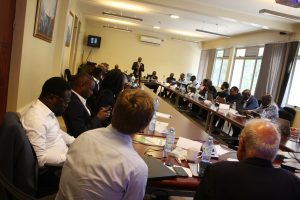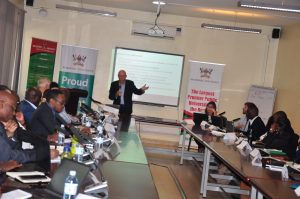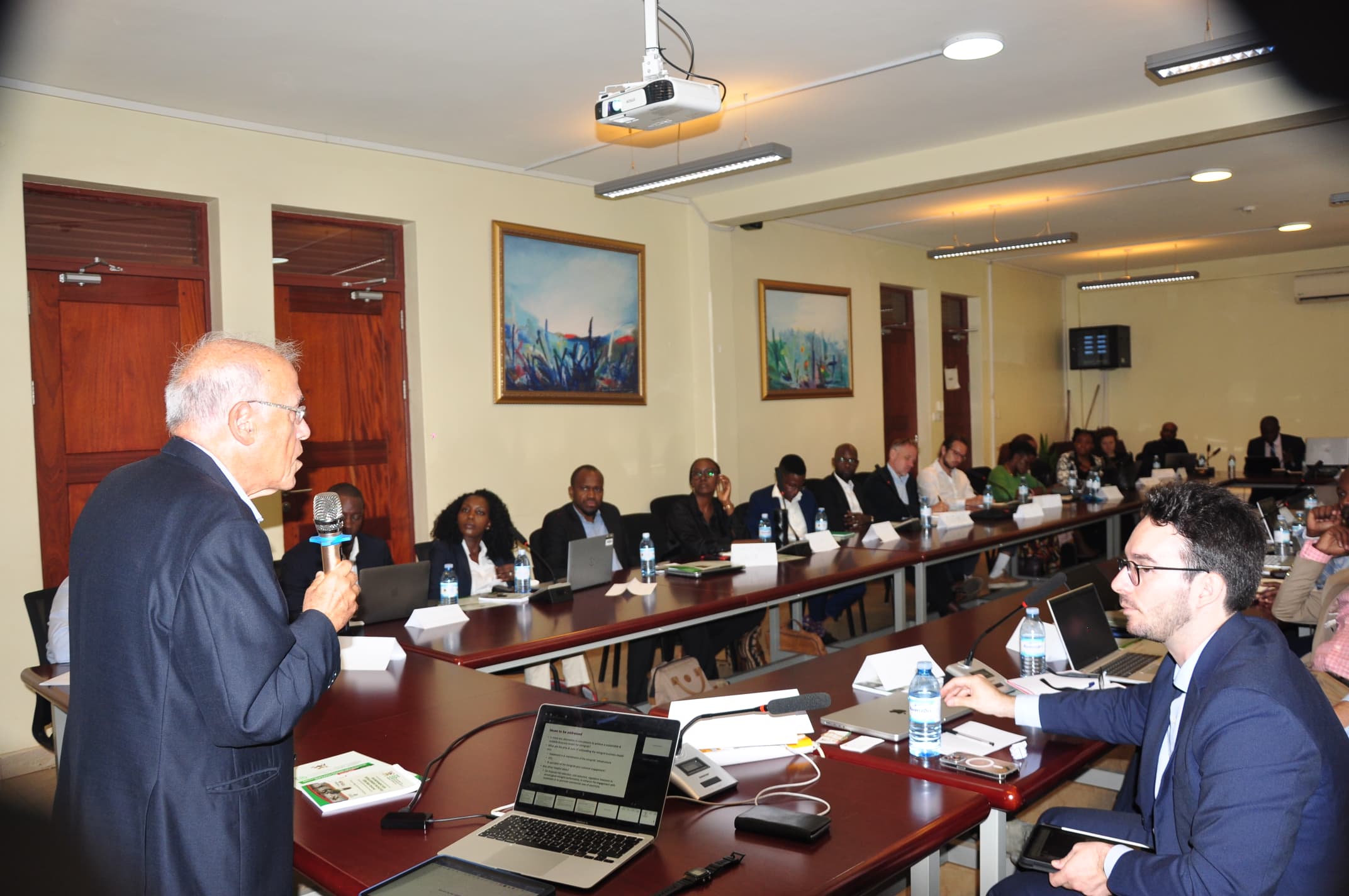Experts gathered at Makerere University to strategize on extending mini-grids to rural areas across Africa, with a focus on ensuring reliable, low-cost electricity. The three-day policy dialogue, held from September 10th to 12th, brought together specialists from Africa, the United States, and Europe.
Prof. Edward Bbaale, Principal of the College of Business and Management Sciences (CoBAMS), emphasized the alignment of this project with Makerere University’s research-led mission. “Energy is crucial at every level, from households to various economic sectors. It’s one of the key drivers of economic activities,” he stated, praising scholars for their timely focus on the energy sector and the importance of developing mini-grid models to meet the needs of underserved areas.
Prof. Bbaale also called for private sector involvement to ensure energy supply at subsidized rates, making electricity more accessible to rural populations.

Assoc. Prof. Ibrahim Mike Okumu, Dean of the School of Economics, highlighted mini-grids as the most affordable solution for rural electrification. He noted that only about 10% of rural populations can currently afford electricity, and mini-grids could offer a cheaper alternative. Prof. Okumu explained that mini-grids, which generate electricity on a small scale for localized areas, are already present in Uganda, including in the Mt. Elgon region, Western Uganda, and West Nile. However, he stressed the need to expand capacity to reach sparsely populated areas, as extending the national grid to such regions would be prohibitively expensive.
The workshop also explored financing models for the project, including long-term versus short-term structures and public-private partnerships. Participants discussed the potential for a book that would serve as a reference for developing mini-grids across Africa, detailing effective models and tariffs for rural areas.

Ignacio Perez Arriaga, External Advisor to the African School of Regulation (ASR), pointed out that even the lowest-cost mini-grid options are often too expensive for rural communities. He recommended cost reductions and permanent subsidies to make electricity more affordable, especially for commercial activities. Arriaga also stressed the importance of regular payments for electricity services and the need for legal frameworks to ensure the financial sustainability of mini-grid projects.
Dolapo Kukoyi, a Nigerian legal expert and advocate for energy access, called for transparent licensing procedures, clear regulations, and sustainable subsidy frameworks to promote energy accessibility. She emphasized the role of incentive policies and tariff structures in ensuring that rural populations can afford electricity.
The experts are exploring various mini-grid energy sources, including wind, hydro, biomass, and solar power, with the goal of scaling up affordable and reliable electricity to rural areas across Africa.

